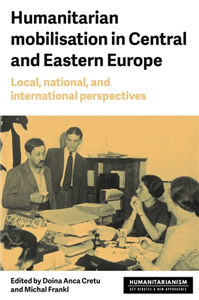Your Search Results
-
Promoted Content
-
Promoted Content
-
 Trusted Partner
June 2020
Trusted Partner
June 2020Das Change Management Workbook
Veränderungen im Unternehmen erfolgreich gestalten
by Lang/Wagner
-
 Trusted Partner
June 2020
Trusted Partner
June 2020Das Change Management Workbook
Veränderungen im Unternehmen erfolgreich gestalten
by Herausgegeben von Lang, Michael; Herausgegeben von Wagner, Reinhard
-
 Trusted Partner
July 2022
Trusted Partner
July 2022Das Change Management Workbook
Veränderungen im Unternehmen erfolgreich gestalten
by Lang, Michael, Wagner, Reinhard
-
 Trusted Partner
July 2022
Trusted Partner
July 2022Das Change Management Workbook
Veränderungen im Unternehmen erfolgreich gestalten
by Lang, Michael; Wagner, Reinhard;
-
 Trusted Partner
Trusted Partner
-
 Trusted Partner
Trusted Partner
-
 Trusted Partner
2022
Trusted Partner
2022Medication Management in the Hospital
A workbook for ward pharmacists
by Dr. Insa Gross, MSc Andreas Fischer and Dr. Holger Knoth
The ward pharmacist in the hospital is like the airbag in a car. As part of a fail-safe system, they monitor and optimise the patient’s drug therapy. Ward pharmacists work hand in hand with medical and nursing staff. That situation is also reflected in this workbook. All the cases presented were patients who had been cared for, evaluated and documented by a physician-pharmacist duo or similar team with combined medical and pharmaceutical expertise. The editorial team considered it important to illustrate all critical indications typically encountered in a hospital. In assessing and selecting the examples, they were able to draw upon the many years’ experience of their pioneering work as hospital and ward pharmacists. Practical tips, checklists, comments and advice for working in the ward environment round off the individual chapters. By learning from actual cases, this book offers the unique chance to develop an instinct for the pitfalls of drug safety. That applies to those who have successfully completed further training in the field of “Medication Management in the Hospital” and for all who wish to ensure the optimum treatment for their patients through competent work in clinical pharmacy.
-
 Trusted Partner
Children's & YA
Trusted Partner
Children's & YAClimate Change. What We Can Do Now
by Ruth Omphalius/ Monika Azakli
“There is no Planet B!” More and more young people are worried about the future of Planet Earth. Climate change is heating not only the planet but also people’s emotions. But what exactly is climate? And why are the changes threatening the lives of both polar bears and us humans. In simple language but with solid science, the authors explain the most important aspects of climate, from the greenhouse effect to the Gulf Stream. Current developments are described as well, and the scientific background is supplemented by gripping reports. The book also offers a glimpse of the future: what will happen if we go on in the same way as now? How can climate change be halted? This makes for riveting reading – and not just for young activists.
-
 Trusted Partner
Trusted Partner
-
 Trusted Partner
January 2003
Trusted Partner
January 2003Organisation und Management
Aufsätze
by Dirk Baecker
Kaum ein soziales System ist uns unbekannter als jenes, in dem jeder von uns den größten Teil seines Tages verbringt. Wenn man einmal von Vokabeln wie „Arbeit, „Bürokratie und „Karriere“ absieht, haben wir kaum eine Sprache, um zu beschreiben, was wir von der Organisation von Unternehmen, Behörden, Kirchen, Schulen und Theatern wissen. Dieser Mangel an einer elaborierten Sprachen wäre unter Umständen nicht weiter zu bedauern, wenn man nicht den Eindruck haben müßte, daß eine einzige Vokabel die Beschreibung all dessen, was hier zu beschreiben wäre, auf ihre Schultern nimmt, das Wort „Management.“ Dirk Baecker geht in einer Reihe von Aufsätzen der Frage nach, was er mit diesem „Management“ auf sich hat und worin seine unzureichend bedachten organisatorischen Voraussetzungen bestehen. Einleitung Durch diesen schönen Fehler mit sich selbst bekannt gemachtInteresse an KommunikationTurbulenzUnentrinnbarkeit der bürokratischen Herrschaft?Freedom and OrganizationSchriftliche AktenführungKonditionierung der AutonomieOrganisation als SelektionDie IndifferenzzoneUngewißheitsabsorptionDie Wiedereinführung der Ungewißheit Müllers VermutungInteresse an UndurchschaubarkeitFurcht und SchreckenDas Spiel des ManagementsParadoxe InterventionenEin Kalkül Das Produkt ist ein GespinstHieroglyphenManagerSchlanke ProduktionInterpretationenKontexte Die Unterscheidung der ArbeitArbeit als „Gestalt“ der modernen GesellschaftArbeit an der ArbeitDie Form der UnterscheidungForm und MediumOperation und BeobachtungSystem und Umwelt Die „andere Seite“ des WissensmanagementsWie liest man ein Schlagwort?Der blinde FleckRekonstruktion, Vernetzung und KorrekturKonditionen Organisation und GeschlechtOrganisation als soziales SystemIndividualisierung und GeschlechtKörper, Psyche, Kommunikation Begeisterte Unternehmer Tabus in FamilienunternehmenDie Trennung von Haushalt und BetriebDer FamilienunternehmerSozialsystem Familie, Sozialsystem BetriebDas Tabu Kommunikation und Kultur als Ressourcen der UnbestimmtheitOrganisationsentwicklungDie Wiedereinführung der KommunikationProbleme der Kultur Der Witz der OrganisationDie DoppelbewegungKommunikation über ArbeitDer WitzDie Kunst Die Strategie der OrganisationOrganisationRaumWissenMachtStrategie Die verlernende OrganisationLernen als ProblemIm Medium der AbweichungDie kompetente OrganisationDie Ebenen des LernensDie Form des Lernens Drei Regeln einer wirtschaftlich effizienten UnternehmenskulturDas Unternehmen als „Rechner“Die Regel der EinfachheitDie Regel der AutonomieDie Regel der kulturellen FührungWirtschaftliche EffizienzTheorie der UnternehmensorganisationDie „Dienstleistungsgesellschaft“ Ausgangspunkte einer soziologischen ManagementlehreWarum Soziologie?Organisation als soziales SystemFünf RessourcenVier UnterscheidungenVier ReferenzenEin MaschinenmodellFünf EckwerteDie Zielsetzung Management im SystemStrukturelle SpannungenArbeit, Arbeitsteilung, HierarchieDie Leistung der BetriebswirtschaftslehreDie Rolle der ProfessionenVariation, Selektion und RetentionFührungSystem und Strukur Organisation und GesellschaftWelche Gesellschaft?OrganisationsdesignRoutinenAusblick Was tut ein Berater in einem selbstorganisierenden System?Radikaler KonstruktivismusSelbstorganisation durch AutopoiesisDer Berater und der ManagerDas System Nachweise
-
 Trusted Partner
October 2015
Trusted Partner
October 2015Diversity Management
Generationenübergreifende Zusammenarbeit fördern
by Wegge, Jürgen; Schmidt, Klaus-Helmut
-
 Trusted Partner
Humanities & Social SciencesMay 2012
Trusted Partner
Humanities & Social SciencesMay 2012Racism and social change in the Republic of Ireland
Second edition
by Bryan Fanning
Now in its second edition, Racism and Social Change in the Republic of Ireland provides an original and challenging account of racism in twenty-first century Irish society and locates this in its historical, political, sociological and policy contexts. It includes specific case studies of the experiences of racism in twenty-first century Ireland alongside a number of historical case studies that examine how modern Ireland came to marginalize ethnic minorities. Various chapters examine responses by the Irish state to Jewish refugees before, during and after the Holocaust, asylum seekers and Travellers. Other chapters examine policy responses to and academic debates on racism in Ireland. A key focus of the various case studies is upon the mechanics of exclusion experienced by black and ethnic minorities within institutional processes and of the linked challenge of taking racism seriously in twenty-first century Ireland. ;
-
 Trusted Partner
Humanities & Social SciencesJanuary 2022
Trusted Partner
Humanities & Social SciencesJanuary 2022How to Promote Motivation to Change
by Hötzel, Katrin; von Brachel, Ruth
Promoting motivation to change is one of the most important treatment components in psychotherapeutic practice across disorders. Working through ambivalence and ultimatelyincreasing motivation to choose recovery with all its consequences is one of the main goals in treatment. This book presents the current state of knowledge anddescribes practical interventions to promote motivation to change. When dealing with ambivalent issues, an open, therapeutic attitude is recommended, as well as certainstrategies for conducting conversations to avoid reactance and resistance. The main focus of the book is therefore on therapeutic conversation and concrete interventions to clarify and increase motivation to change. For:• medical and psychological psychotherapists• child and adolescent psychotherapists• specialists working in psychiatry, psychotherapy,or psychosomatic medicine• clinical psychologists• psychological counselors• students and teachers in psychotherapeutic training,further training, and continuing education
-
 Trusted Partner
PsychologyApril 2018
Trusted Partner
PsychologyApril 2018What is “Good” Dementia Care?
by Christoph Held
People with dementia experience their condition as a big change in which, for example, new events are not linked to existing experiences and wishes, thoughts, and actions can no longer be connected to each other. This kind of experience of the self, due to the intergative function of the brainbeing temporarily or permanently lost, is called dissociative self-experience. Based on this understanding of dementia, the author develops an approach to effectively understand and support people with dementia in everyday activities. Typical everyday situations and behaviours are presented and reflected on in a practical context.
-
 Trusted Partner
Trusted Partner
-
 Trusted Partner
Trusted Partner
-
 Trusted Partner
Political structure & processesMay 2007
Trusted Partner
Political structure & processesMay 2007Devolution and constitutional change in Northern Ireland
by Edited by Paul Carmichael, Colin Knox and Robert Osborne
This edited book, written by a collection of scholars with an interest in Northern Ireland, tracks its uneasy experience with devolution following the optimistic political period associated with the 1998 Belfast (Good Friday) Agreement. The volume brings together researchers from the Economic and Social Research Council's (ESRC) 'Devolution and Constitutional Change' Programme and other experts to record four key perspectives on Northern Ireland. First, it considers the inextricable link between devolution and constitutional developments. Second, it examines how the main political parties responded to devolution and the major challenges faced by society in moving beyond conflict (such as political symbolism, the role of women, equality and human rights issues). Third, it attempts to assess some of the workings of devolved government in its short-lived form or those seeded in devolution and carried on by direct rule ministers. Finally, Northern Irelands devolved government and associated institutions are located within the wider relationships with Westminster, the Republic of Ireland and Europe. This edited volume will be of interest to students of Irish politics and public policy, but more generally, from a comparative perspective, those with an interest in devolution and constitutional change. It may even assist politicians in Northern Ireland to reflect on the real potential to restore its devolved institutions and draw back from the brink of permanently copper-fastening 'direct rule' from Westminster.
-
 Trusted Partner
Humanities & Social SciencesNovember 2025
Trusted Partner
Humanities & Social SciencesNovember 2025Humanitarian mobilisation in Central and Eastern Europe
Local, national, and international perspectives
by Doina Anca Cretu, Michal Frankl
By focusing on aid Central and Eastern Europe, the volume adds to the existent scholarly explorations of modern humanitarianism, its actors and practices. In the twentieth century, aid workers assisted victims of war and earthquakes, delivered food, supported health care, provided childcare, or sheltered refugees. The contributors not only reconstruct these diverse histories and their protagonists, but also bring international, national, and local actors together: from grassroots activists to private associations to state-driven "socialist humanitarians" to large Western aid organizations. In doing so, they challenge the often unidirectional, from West-to-East, and asymmetrical perspective on donor-recipient relationships in humanitarian processes.






























